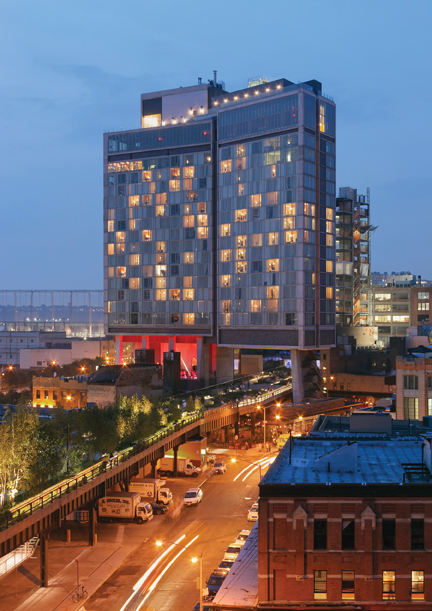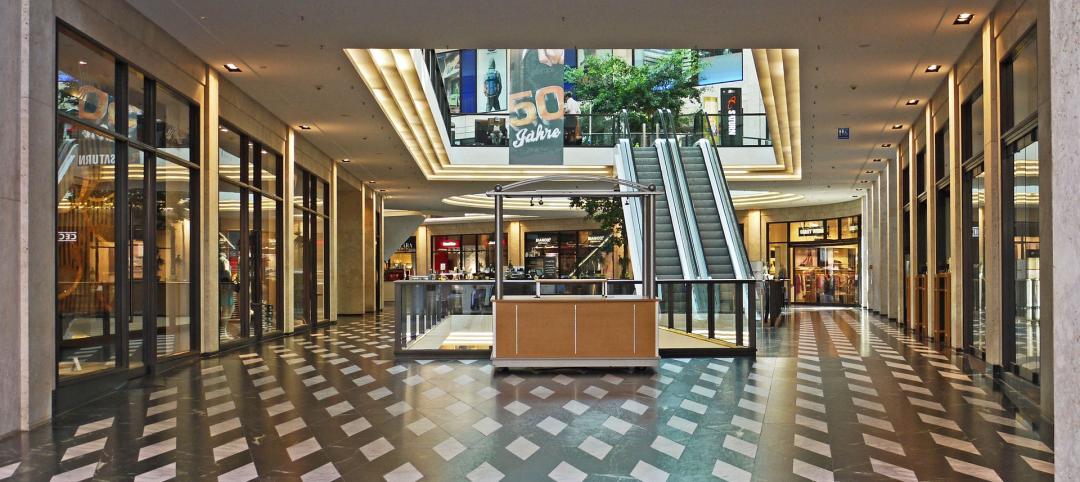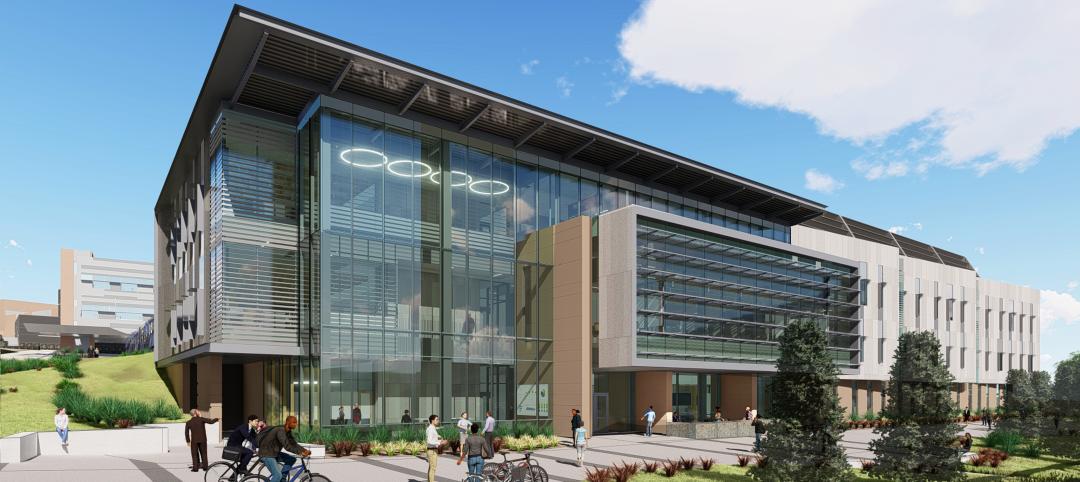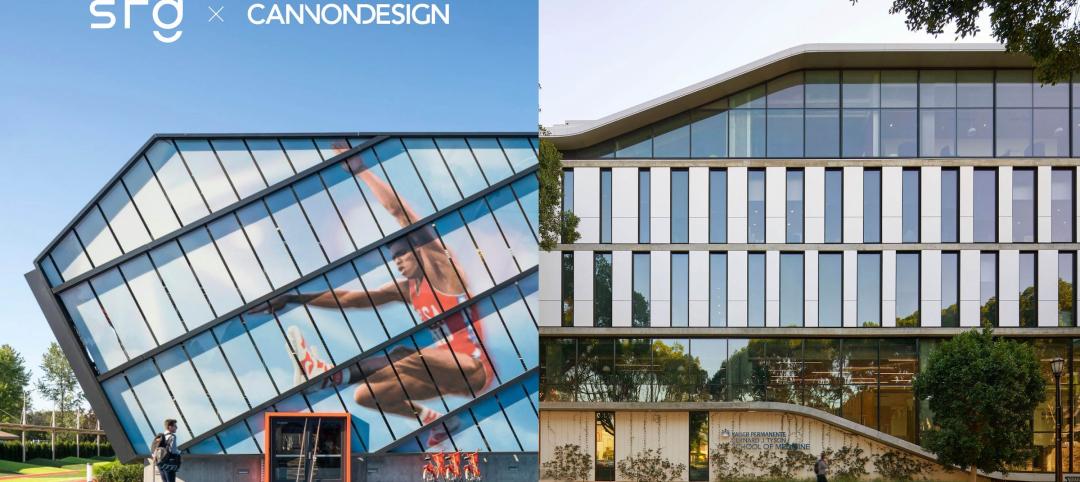The recession is weighing heavily on architects, engineers, and contractors, if the results of an exclusive BD+C survey of 504 AEC professionals are any measure of the commercial construction industry’s outlook on business prospects for 2012.
More than three-fourths of respondents (78.4%) rated “general economic conditions (i.e., recession)” as the most important concern their firms will face in the next year, followed by competition from other firms (40.1%) and lack of capital funding for their projects (34.5%).
Nearly three in four (74.8%) described the current business situation for their firms as “very” to “intensely” competitive—a strong verification of the dog-eat-dog climate that many in the AEC industry have reported anecdotally in the last couple of years.
On the brighter side, nearly half of respondents (49.7%) said their firms were in at least “good” financial health, and four-fifths (80.2%) said their companies would at least hold steady in revenue in 2012.
Layoffs over the last two years were reported by 44.8% of respondents, with another 37.3% saying that hours had been reduced, while more than half (51.0%) said their firms had eliminated or cut back on bonuses.
Looking toward 2012, nearly half of respondents (46.8%) said they thought their companies would be beefing up PR and marketing initiatives to revive their businesses.
More than a third (35.7%) said their firms would be pumping dollars into technology. However, more than one in five (20.6%) said their firms were not using building information modeling; of those who said BIM was used in their shops, a clear majority (58.4%) said BIM figured in less than 25% of projects, while only slightly more than one-fourth (26.8%) said BIM was being used most of the time (i.e., 50% or more of projects, based on dollar value).
Healthcare remains strongest sector
Respondents were asked to rate their firms’ prospects in specific construction sectors on a five-point scale from “excellent” to “very weak.” (Respondents who checked “Not applicable/No opinion/Don’t know” are not counted here.) Among the findings:
- Healthcare was the most highly rated sector, with a strong majority of respondents (54.6%) giving it a “good” to “excellent” rating.
- Data centers and mission-critical facilities were also given good marks, with 45.2% of respondents in the good/excellent category.
- Government and military work was rated good to excellent by more than two-fifths of respondents (41.1%).
- Senior and assisted-living facilities drew a fairly strong 37.8% of respondents in the good to excellent category.
- University/college facilities were rated good to excellent by nearly a third of respondents (32.3%).
Other sectors had much less optimistic support from respondents. Only one in nine (11.1%) said they thought retail commercial construction would have a good to excellent year. Less than 1% thought cultural/performing arts centers had a chance to have even a good year, and only 1.5% were sanguine about industrial and warehouse facilities.
The prospects for office buildings were bleak as well, with only 9.4% saying that market would be good to excellent—and nearly two-thirds (67.3%) predicting office buildings would be “weak” or “very weak.” However, office interiors and fitouts fared better, with 28.0% saying that sector would be good to excellent.
“Good to excellent” prospects for other sectors were mixed: 23.2% for K-12 schools and 24.0% for multifamily projects (condos and apartments, but most likely the latter).
In sum, hardly the cheeriest of prognostications for the 2012 commercial design and construction industry, according to respondents to our exclusive survey.
Note: Of the 494 who gave their professional description, 41.3% are architects; 19.0%, engineers; 18.8%, contractors; 10.7% building owners, developers, or facility/property managers; and 10.2%, consultants or “other.”
For more information visit www.BDCnetwork.com/forecast/2012. BD+C
Related Stories
Giants 400 | Feb 5, 2024
Top 30 Entertainment Center, Cineplex, and Theme Park Architecture Firms for 2023
Gensler, JLL, Nelson Worldwide, AO, and Stantec top BD+C's ranking of the nation's largest entertainment center, cineplex, and theme park architecture and architecture engineering (AE) firms for 2023, as reported in the 2023 Giants 400 Report.
Urban Planning | Feb 5, 2024
Lessons learned from 70 years of building cities
As Sasaki looks back on 70 years of practice, we’re also looking to the future of cities. While we can’t predict what will be, we do know the needs of cities are as diverse as their scale, climate, economy, governance, and culture.
Giants 400 | Feb 5, 2024
Top 90 Shopping Mall, Big Box Store, and Strip Center Architecture Firms for 2023
Gensler, Arcadis North America, Core States Group, WD Partners, and MBH Architects top BD+C's ranking of the nation's largest shopping mall, big box store, and strip center architecture and architecture engineering (AE) firms for 2023, as reported in the 2023 Giants 400 Report.
Laboratories | Feb 5, 2024
DOE selects design-build team for laboratory focused on clean energy innovation
JE Dunn Construction and SmithGroup will construct the 127,000-sf Energy Materials and Processing at Scale (EMAPS) clean energy laboratory in Colorado to create a direct path from lab-scale innovations to pilot-scale production.
Architects | Feb 2, 2024
SRG Partnership joins CannonDesign to form 1,300-person design giant across 18 offices
SRG Partnership, a dynamic architecture, interiors and planning firm with studios in Portland, Oregon, and Seattle, Washington, has joined CannonDesign. This merger represents not only a fusion of businesses but a powerhouse union of two firms committed to making a profound difference through design.
Giants 400 | Feb 1, 2024
Top 90 Restaurant Architecture Firms for 2023
Chipman Design Architecture, WD Partners, Greenberg Farrow, GPD Group, and Core States Group top BD+C's ranking of the nation's largest restaurant architecture and architecture engineering (AE) firms for 2023, as reported in the 2023 Giants 400 Report.
Standards | Feb 1, 2024
Prioritizing water quality with the WELL Building Standard
In this edition of Building WELLness, DC WELL Accredited Professionals Hannah Arthur and Alex Kircher highlight an important item of the WELL Building Standard: water.
Luxury Residential | Feb 1, 2024
Luxury 16-story condominium building opens in Chicago
The Chicago office of architecture firm Lamar Johnson Collaborative (LJC) yesterday announced the completion of Embry, a 58-unit luxury condominium building at 21 N. May St. in Chicago’s West Loop.
Industry Research | Jan 31, 2024
ASID identifies 11 design trends coming in 2024
The Trends Outlook Report by the American Society of Interior Designers (ASID) is the first of a three-part outlook series on interior design. This design trends report demonstrates the importance of connection and authenticity.
Museums | Jan 30, 2024
Meier Partners' South Korean museum seeks to create a harmonious relationship between art and nature
For the design of the newly completed Sorol Art Museum in Gangneung, South Korea, Meier Partners drew from Korean Confucianism to achieve a simplicity of form, material, and composition and a harmonious relationship with nature. The museum is scheduled to open on February 14. It is the firm’s first completed project since restructuring as Meier Partners.

















